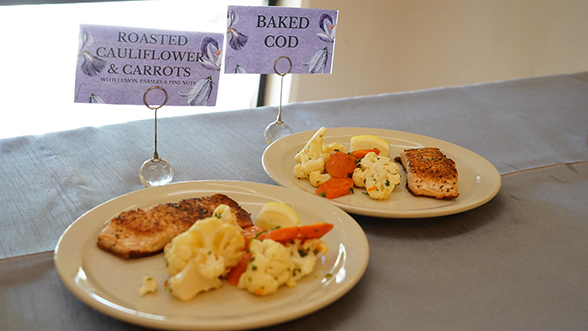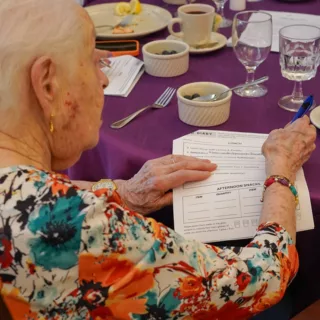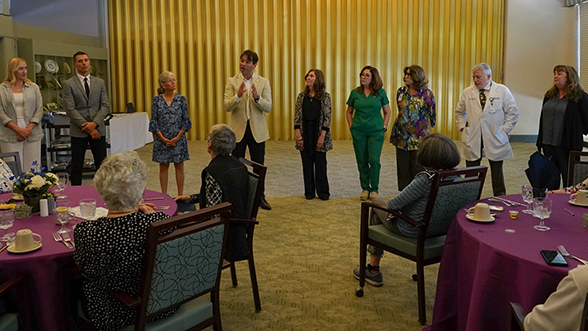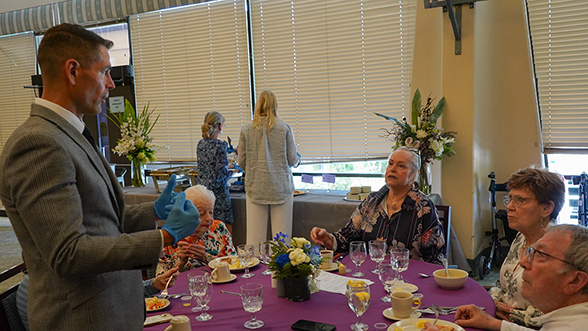LAJHealth Teams With USC on Groundbreaking New Study Featuring the Popular Mediterranean Diet


Los Angeles Jewish Health Teams With USC on Groundbreaking New Study Featuring the Popular Mediterranean Diet
Extensive scientific research continues to demonstrate the medical benefits of healthy eating. A new collaboration between Los Angeles Jewish Health (LAJH) and the USC Leonard Davis School of Gerontology (USC) is deepening that body of evidence with a study looking at the effects of diet on older adults who reside in a senior living facility.
USC Associate Professor Roberto Vicinanza, MD, PhD, a noted specialist in geriatric medicine, led the eight-week study, which was designed to gauge the impact of a modified Mediterranean diet on LAJH residents’ health. The Mediterranean diet emphasizes plant-based, whole foods, including those from all five food groups. Featured in the diet are select fruits and vegetables; fish, lentils, and beans for protein, while limiting red meat and poultry; nuts and olive oil, which provide healthy fats; and opting for whole versus refined grains.
“The Mediterranean diet and its health effects are well documented, but older adults are often overlooked,” Dr. Vicinanza says. “To design this dietary intervention, I was inspired by the traditional eating habits of a long-lived community in southern Italy known as Cilento—a longevity hotspot that I have explored extensively in the last three years. Based on this experience, in our study we adjusted the Mediterranean diet to meet the unique needs and limitations of older adults, many of whom experience challenges in the digestion of certain foods.”
LAJH residents enrolled in the study ate their meals together to help foster a sense of community. In addition, they increased their physical exercise, incorporating activities like walking into their daily routines.
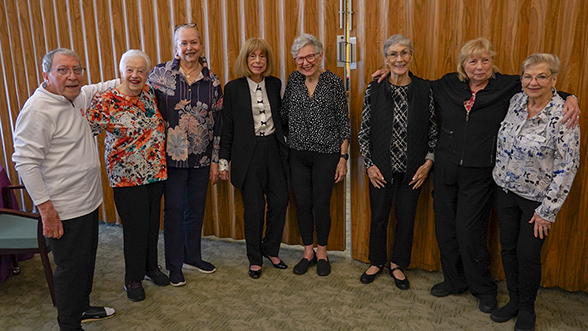
According to Noah Marco, MD, LAJH’s chief medical officer and executive director of the Brandman Research Institute, researchers evaluated study participants based on three core components measured prior to the introduction of the diet: their ability to walk, their muscle strength, and their biological markers of health as indicated through blood tests. Results are still pending, but Dr. Marco notes that preliminary data are highly encouraging.
“We wanted to know, going into the study, whether someone in their later stages of life could, by modifying their diet and adding a little exercise, change markers of longevity, frailty, and health, even in a short period of time,” Dr. Marco says. “Based on our findings, the answer is clearly ‘yes!’”
He points to one example as anecdotal evidence of the study’s success.
“We had a participant who has been diabetic most of her adult life; for 20 years, she was on three different medications. As a result of this study, she now has better control of her disease and is down to one medicine,” he says. “We saw lots of things like this: improvement in people’s cholesterol and blood sugar levels, significant weight loss, weight gain in one instance where the resident needed it. The benefits were clear.”
Some of these benefits seem to have stemmed from the study’s social aspects, Dr. Vicinanza says.
“Seniors sometimes feel isolated and lonely,” he says. “But we saw something amazing during the study, which was that participants were supporting and encouraging each other, which provided a sense of community and purpose—both things that have been associated with longevity.”
LAJH resident Marcia Mass, 83, was one of the study’s enthusiastic participants. She says it has transformed her physical health.
“I’ve lost weight, and I feel better—more energized and alert,” she says. “I play a word game on the computer, and before the diet, I was getting to level 15 or 20. Now, I’m at level 64! Everything seems easier.”
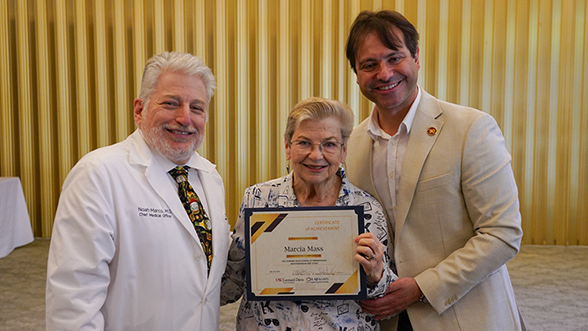
The study was made possible through generous funding from the Anita and William Jeung Estate Research Grant and the Simon Nutrition and Alzheimer’s Research Fund.
In addition to Dr. Marco and Dr. Vicinanza, other key investigators from the USC School of Gerontology included Pinchas Cohen, MD, dean of the school, for the aging biomarkers; Cary Kreutzer, EdD, RDN, who played a critical role in developing tools to improve diet adherence; Julie Pollard, a part-time lecturer, who helped establish protocols for physical activity; and Adam Hughes, Shirley Liu, and Chiara Pomari—students from USC’s Master of Science in Nutrition, Healthspan, and Longevity Program—who served as study coordinators.
Once the study’s results have been finalized, Dr. Marco and Dr. Vicinanza hope to replicate it with a larger cohort of residents.
“We’ll be applying for a grant from the National Institutes of Health, and we think this falls directly in line with its priorities: leveraging lifestyle changes to increase health dramatically among seniors while potentially reducing costs,” Dr. Marco says. “It’s win-win!”
